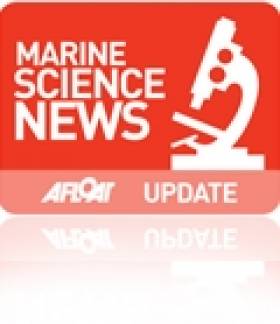Displaying items by tag: Balearic Shearwater
Ferry Operator Assists in Marine-Life Conservation Role
Fastnet Line which runs the Cork-Swansea port route on the Celtic Sea, is assisting the charity MarineLife to monitor cetaceans, writes Jehan Ashmore.
The work of MarineLife is to survey the population trends and track the movements of dolphins, whales, porpoises and other wildlife. The research is undertaken onboard Fastnet Line's Julia (1981/21,699grt) and access to the ferry is provided free-of-charge to the wildlife-based charity.
During the months of July and August the ferry's schedule will allow for further opportunities to conduct daylight sightings of marine-life which is to be posted on MarineLife and Fastnet Line websites.
Adrian Shephard, Chairman of MarineLife Trustees, said: "The route from Swansea to Cork crosses a range of marine habitats and we hope it will generate many sightings of cetaceans and seabirds, including two important species we monitor, the white-beaked dolphin and the balearic shearwater".
In addition monitors recently observed fin whales, the second largest whale on the planet. Such sightings provide vital information and this will contribute to a better understanding of the distribution of cetaceans and other marine life in the Celtic Sea. To read more www.marine-life.org.uk
The first of four summertime surveys is to take place on 10 July. Overall the research by MarineLife is part of a larger project which also involves the use of other ferries operating in the Irish Sea and those serving on UK continental routes.
The 1,500 passenger / 325 car-carrying Julia sails year-round six times a week between September to June and from next month and during August the vessel will provide eight sailings per week. For fares and sailings schedules contact www.fastnetline.com






























































